A Resource Guide for COPD Patients who Struggle with Mental Health
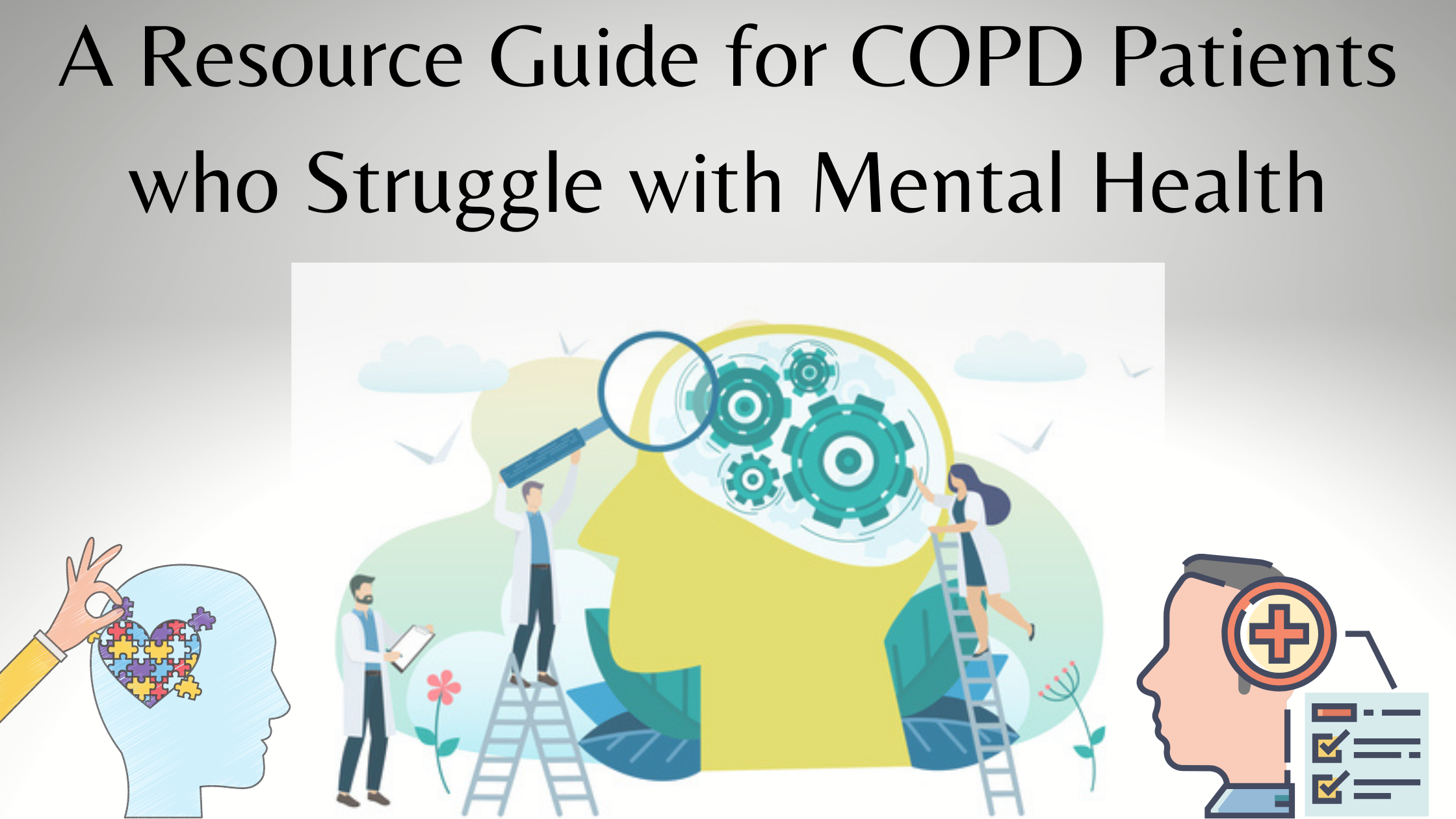
COPD effects more than just your lungs and how well you can breath. It also influences your mental state causing irrational behavior or mood swings, and can even lead to depression and anxiety.
People with COPD can sometimes be irritable and come off as cranky. If you struggle with mood swings and other mental health issues that seem to be related to your COPD, this article is for you.
According to a review, “Anxiety and Depression in Patients with Chronic Obstructive Pulmonary Disease (COPD) — A Review,” about 50 percent of people living with COPD exhibit symptoms of anxiety and depression. Another recent study in the USA reported that less than a third of COPD patients with major depression received the appropriate treatment.
Evidence suggests that people with COPD are very susceptible to depression, stress, and anxiety due to a number of reasons, one being that their life as they knew it, is over in some ways, but also a vicious cycle of COPD symptoms impacting mobility, independence, and other qualities of life. These anxious and/or depressed feelings can make it very hard for you to care for yourself and adhere to your treatment regime.
Introduction

Mental health in general is a delicate thing, something as normal as aging can initiate depression and anxiety in folks who have never had these mental illnesses before. This is something called environmental or situational depression, where outside factors influence the way someone reacts and feels emotionally. Clinical depression is a biological imbalance of chemicals in a person’s mind that makes them react and feel a certain way.
The fact is, everyone feels sadness because everyone goes through sad experiences. It is a natural human emotion. On the other hand, clinical depression is a serious condition that can have a profound impact on a person’s everyday life, and oftentimes for no reason at all.
Situational depression is known medically as “adjustment disorder with depressed mood.” In many cases it will resolve over time, and therapy sessions may be recommended in order to ease the recovery process.
As you read this article, it is important to categorize your own emotions based on this criteria in order to understand and get the best help for yourself. If you need help deciphering your symptoms from being clinical compared to situational depression, speak with your doctor or a mental health professional who is qualified to diagnose these illnesses.
You can also visit this source about the differences between situational depression versus clinical depression:
We want to preface this article by saying that we are not a mental health organization, nor do we specialize in any kind of therapy, however we work with oxygen users who are in some of the most severe stages of their pulmonary disease and we try to help them in the one way we are qualified to help: Providing the best, most reliable, and affordable oxygen equipment on the market along with educational resources. If you are interested in learning about any of our portable oxygen equipment, after reading this article you can reach us at 1-800-946-1201, or simply leave a comment on the blog so we can reach out to you!
We have developed this article for our readers who may need to seek outside help for their mental health conditions, and we hope this article can help you find the resources in order to do so.
How does mental health impact people with COPD
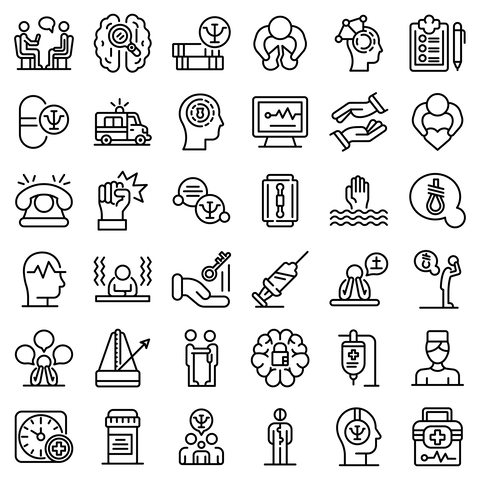
There is a lot of research about the ways in which COPD patients suffer from depression and anxiety. In a study by The National Center for Biotechnology Information a study was conducted about COPD patients and how anxiety and depression can contribute greatly to COPD-related death, notably by reducing quality of life and lack of adhering to treatment.
Depression can inhibit a person’s ability to care for themselves, and when you have COPD it is so important to maintain a healthy exercise regimen, take all of your medications, and adhere to your oxygen therapy needs. If you are depressed you are less inclined to take the necessary measures in order to protect yourself from this chronic illness that will inevitably get worse over time, and even take your life.
Quality of life is an attainable goal for you even if you have COPD, but mental health and depression can get in the way of those goals. On top of that, depression and anxiety can be challenging to identify and furthermore treat because those symptoms often overlap with COPD symptoms.
Identifying depression, anxiety, and developing an appropriate treatment strategy is critical to reduce the number of times you have to go to the hospital to seek medical treatment and overall improve your quality of life.
Why do people with COPD struggle with mental health
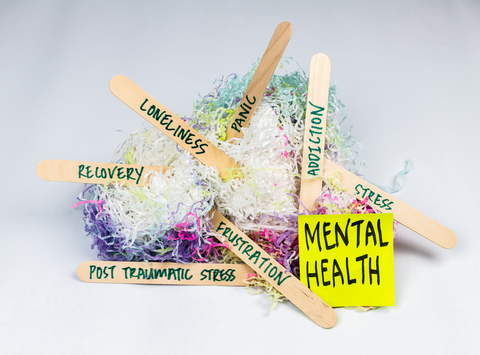
Chronic obstructive pulmonary disease (COPD) is a chronic inflammatory lung disease that causes obstructed airflow from your lungs. The symptoms include trouble breathing, excessive coughing, abnormal mucus production and wheezing. It is most commonly caused by long-term exposure to irritating gases or pollution, examples include cigarette smoke.
Emphysema and chronic bronchitis are the two most common conditions that contribute to COPD. These two conditions are likely to occur together. Every individual's symptoms vary in severity. COPD is a chronic illness meaning there is no cure, and it gets worse over time.
Simply the concept of having COPD can be considered depressing, especially for people who have grown up to be very active or were capable of physical activities in their youth and now they cannot do the things they love. Becoming short of breath after accomplishing a simple task can leave you feeling helpless or dependent on others.

Symptoms of anxiety and depression include:
- Fatigue
- Loss of interest
- Persistent sadness or anxiousness
- Inability to work, sleep, study, eat, or enjoy once-pleasurable activities
For people living with COPD depressive and anxious symptoms can have profound effects. Social isolation can cause anxiety and depression and on top of that the immobility that you might have already experienced as a result of breathlessness and lack of energy can be overwhelming to deal with. These cycles will impact your life in a very negative way.
Nevertheless, treatment is available and has been proven to increase the physical and mental state of COPD patients. These treatments include:
- Cognitive behavioral therapy
- Pharmacological treatments
- Self management
- Pulmonary rehabilitation relaxation therapy
- Eating healthy and good gut health
How to take better care of you mental health
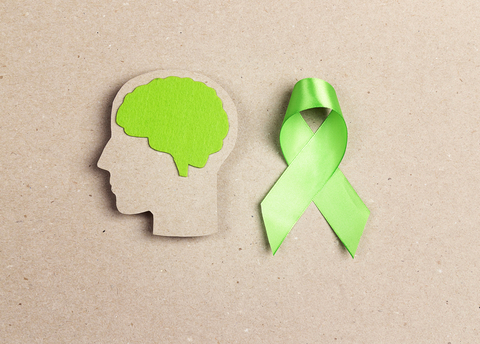
Similarly to exercising in order to strengthen your lungs and increase your physical abilities, it is important for COPD patients to also take care of their mental and emotional health. This means adjusting and learning how to deal with depression and anxiety when it arises but also recognizing triggers before it's super obvious.
Seeking care for depression and communicating with your caregiver are two basic tactics you can try in order to help manage your mental state of mind. We will talk about more complex and effective ways for dealing with anxiety and depression in the sections below. Read on.
Pulmonary Rehabilitation

One of the most beneficial and most underutilized treatments for COPD along with depression and anxiety, is pulmonary rehabilitation. Pulmonary rehab has been shown in multiple studies to improve the depression and anxiety associated with COPD, and it can do more for those symptoms than any kind of medication in many cases.
A pulmonary rehab course is a general program that helps to improve your lifestyle and wellbeing as you are living with chronic lung conditions.
In a pulmonary rehabilitation course you will learn how to use exercise training in conjunction with medical therapy, nutritional counseling, COPD education, and psychological counseling and/or group support.
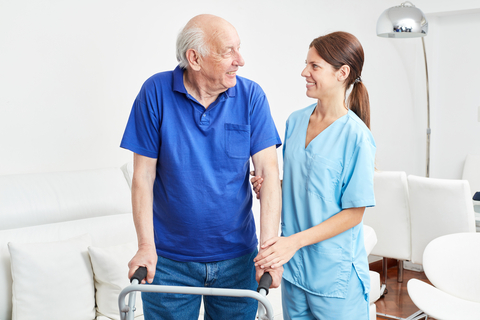
Pulmonary rehabilitation courses will provide you with a supervised exercise program that you can do inside and outside of the facility, two to three days a week, for up to three hours per day. Just having a place to go and things to do can be very meaningful and enjoyable. And on top of that you will start working towards goals which can also help with depression and anxiety.
While you are at pulmonary rehab you are often monitored by a respiratory therapist, a physical therapist and an occupational therapist. You may also be involved in some group therapy and exercise classes. This way you will learn about your condition and talk to others about the emotional and psychological challenges all while getting physically stronger and more capable.
This is a space where other people are experiencing the same or in some cases worse symptoms than you are, and it is a great way to not feel alone in your diagnosis.
For more information on pulmonary rehabilitation and to find a program near you, visit the American Association or Cardiovascular and Pulmonary Rehabilitation
Pulmonary rehabilitation benefits are available through most major insurance companies.
Also you can find a document here that explains how to do exercises, COPD education, and how you can get into a pulmonary rehabilitation program.
Pharmacological treatments
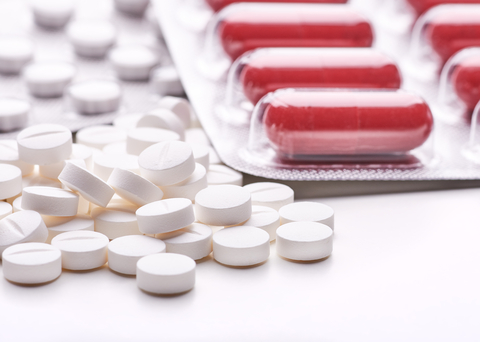
A new study suggests certain antidepressants may increase the risk of death in people with COPD by 20 percent. These drugs have side effects that are very dangerous for people with COPD to experience such as, sleepiness, vomiting, and can negatively effect the immune system cells. All of these side effects can increase the likelihood of infections, breathing issues, and other unfavorable events, especially in patients with COPD because it can lead to an exacerbation and hospitalization.
The medical world is quick to resort to a pharmaceutical treatment instead of looking into lifestyle changes, including pulmonary rehabilitation and generating a support network. Given the risks of antidepressants for COPD patients, COPD advocates say that it’s worth considering alternative approaches to pharmaceutical treatment.
Personalized behavioral therapy

The main psychological intervention for mental illness and COPD is cognitive behavioral therapy (CBT). CBT is increasingly recommended in the management of people living with COPD and it can include pulmonary rehabilitation programs, which we discuss in the sections above and notably reduces anxiety and depressive symptoms. CBT also requires an upfront investment in hospitals with pulmonary patients in order to train nurses and hospital staff being capable of fulfilling the needs of patients with COPD—both physically and psychological.
Research has found that CBT was most effective in reducing anxiety symptoms in COPD patients and has a significant impact on their quality of life as well as their ability to keep physically active and can also improve survival in the long-term.
This is somewhat out of your control as a COPD patient because the hospital is responsible for investing in upfront costs that includes training nurses and finding resources to implement cognitive behavioral therapy for their patients.
It is believed that the implementation of personalized strategies to address your unique psychopathological traits is essential, but this requires a lot of work by your healthcare team and willingness and dedication of their institution as well.
Self Management
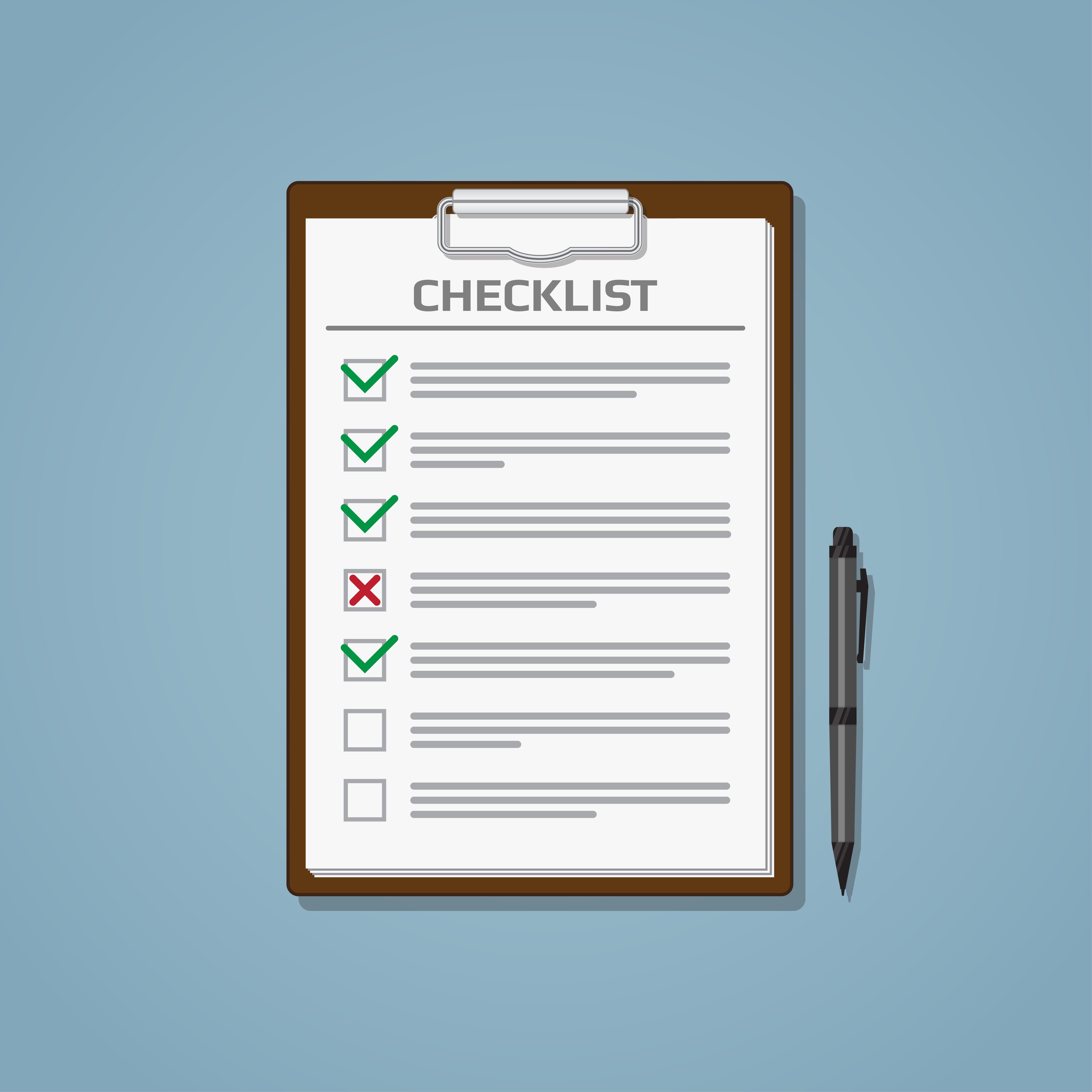
Self management is a great way for you to address your mental health complications rather than depending on cognitive behavior therapy programs that might be outside of your means. Interventions have been shown to improve patients’ quality of life and reduce the number of emergency scenarios..
Self-management interventions vary in content, delivery, and intensity, which can make it difficult to determine what parts of these interventions are most effective. It is best for you to do what works for you and leave the rest.
Here are a few stages of self-management:
- Noting what your normal symptoms feel like, and addressing any changes throughout the day or night
- Being capable of determining when you are having more severe symptoms versus when you are having a serious exacerbation.
- writing down and understanding which COPD symptoms initiate your moods
- Setting up a rescue pack
- Accepting your condition
- Adjusting to a new normal
- Slowing down the progression of your disease through diet, exercise, and oxygen therapy

Self managing your condition means monitoring your symptoms when stable and to take appropriate action when symptoms worsen. You can also be prescribed a rescue pack for when you are at risk of an exacerbation, this can ease you anxiety about having an exacerbation because you will feel more prepare and confident handling emergency situations.
Many illnesses, such as COPD, require an internal acceptance of the condition. You will have to come to terms with the likely course of the disease, as well as possible complications, and a different lifestyle.
As a result of breathlessness and other COPD symptoms, it is common to get complacent, and avoid exercise as an outcome of this complacency. This is reasonable in the beginning, but can be very harmful for your physical well-being in the long term, also causing unnecessary mental difficulties to develop.
Eating a well balanced diet

Eating healthy goes for anyone who struggles with mental health problems, not just people with COPD. Human gut health is closely related to our chemical receptors in our brains, the relationship is so strong that one influences the other directly, which is where the saying, “Go with your gut” came from.
There are strong links between digestion and your mood, digestion and your health, and even digestion and the way you think. This is because inside your gut is another “brain” like system, called the enteric nervous system (ENS).
The ENS is composed of more than 100 million nerve cells lining your gastrointestinal tract from esophagus to rectum. This system controls every part of your digestion: Swallowing, releasing enzymes that break down food, controls blood flow that helps with nutrient absorption, and elimination. Amazingly, while you ENS is digesting, it is also communicating with your brain.
It is known now that your ENS may trigger big emotional shifts, whereas before researchers thought it was only the other way around thinking that anxiety and depression contributed to gastrointestinal problems. Recent studies show that irritation in the gastrointestinal system may send signals to the central nervous system (your brain) that trigger mood changes and even depressive and anxious feelings.
So how does gut health relate to what is happening inside your lungs, and can the nature of COPD influence the health of your gut? In fact, your lungs and gut are closely related, studies have shown that there is a clear link between inflammatory intestinal conditions and inflammatory lung problems.
Many people with COPD also suffer from conditions that may be rooted in or contribute to poor gut health.
The conditions listed below are often experience in conjunction with COPD and will also impact your gut health:
Inflammatory and autoimmune diseases
Besides eating a well-balanced diet, there is not a lot else you can do in order to improve your gut health besides the potential capabilities of probiotics.
Probiotics

Probiotics are “good bacteria” that is supposed to increase the amount of infectious fighting bacteria that already lives inside your gut. These microbes fight infections and do a lot to contribute to the balance and well-being in your digestive tract. Therefore, probiotics are living microbes that you can take as a supplement or eating probiotic rich foods, in hopes that it will add to the healthy bacteria in your gut and fight off the unhealthy bacteria.
Probiotics are one of the mainstream media treatments for improving gut health. Research suggests that even more research needs to be done in order to prove any significant correlation between probiotics and how strong its contribution to a healthier gut. However, if you have COPD, and if your doctor agrees, taking probiotics can certainly help to maintain a healthier gut.
A healthier gut is going to contribute to less mood swings and hopefully help with depressive and anxious feelings as well.
Overview
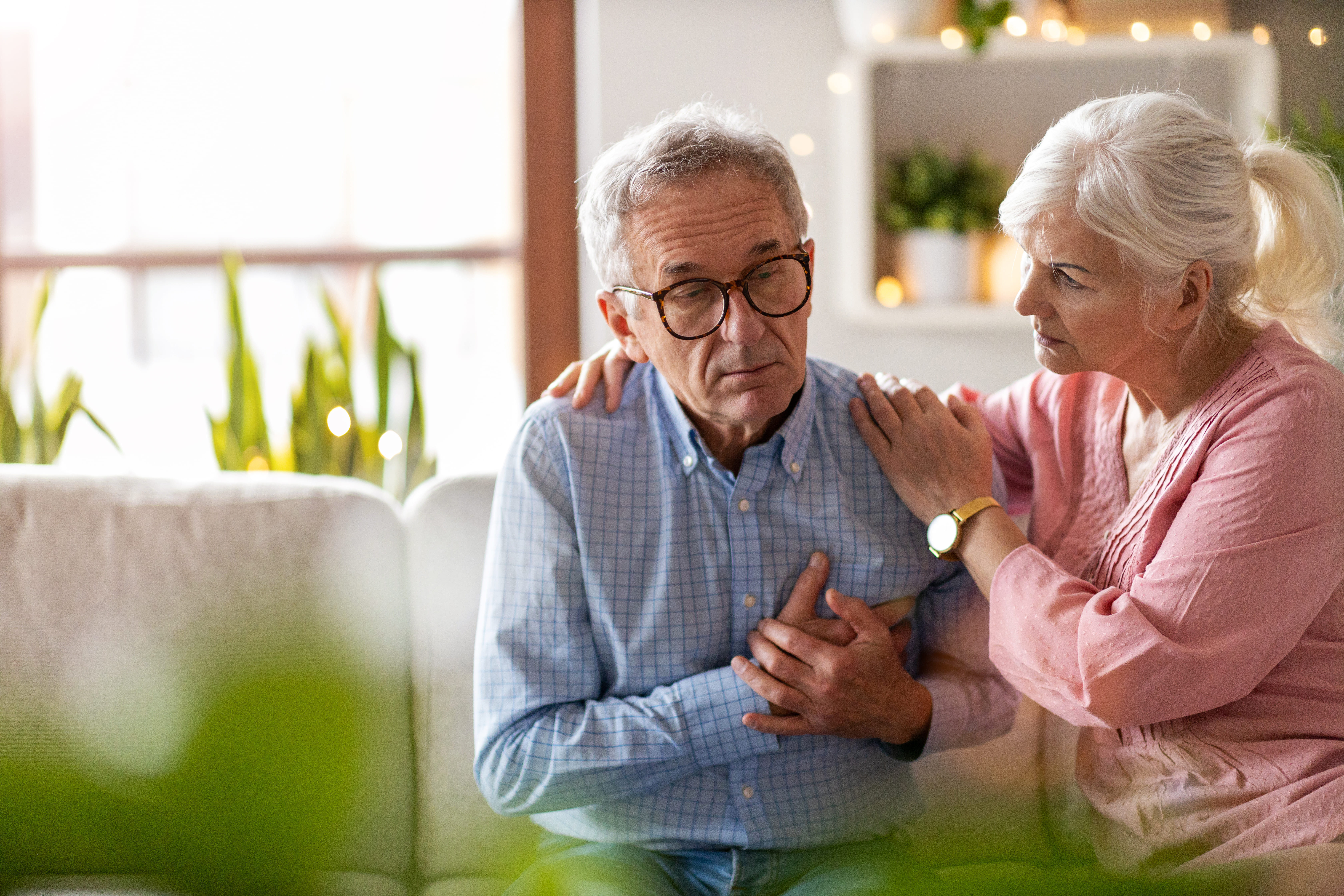
Overall, COPD will inevitably affect your mood in more ways than one, and for most people with COPD they will also experience subsequent depression and/or anxiety due to their respiratory disease.
There are a number of reasons as to why you may experience depression or anxiety throughout your diagnosis. For many people feeling short of breath can lead to an anxiety attack and it is notoriously a symptom of an anxiety attack to have trouble breathing, a vicious cycle.
Many people also struggle with depression because of their immobility, and not having the correct oxygen equipment to move around freely and independently.
Exercise and social gatherings are two important aspects of a person’s mental health, and if your oxygen device is not portable or too heavy to maneuver, you would benefit from investing in a portable oxygen concentrator so you are capable of more activity.
Pulmonary rehabilitation is a great way for you to get involved with a community of people who are in similar situations to share and express feelings. It also offers you an educational program where you can learn about your disease, and understand exactly what is happening inside your lungs and body. Not only are you socializing and learning about COPD, you also learn how to do exercises that you can also do at home in order to stay fit or get in healthier shape.
{{cta('fa8abc2a-1e88-4fa3-82fd-1cb5b9ed43b2','justifycenter')}}
Even though antidepressants may seem like the most obvious answer to combat depression and even anxiety, the side effects can be very damaging for people who have COPD. COPD advocates would argue that doctors are too quick to resort to pharmaceuticals before they offer lifestyle advice, recommend a cognitive therapist, or seek a pulmonary rehabilitation course.
Actually writing down your COPD symptoms and your feelings everyday and addressing the changes you recognize is a form of self management, and this can be a very helpful tool in managing depression, anxiety, or regular mood swings. By noting your moods that correlate with COPD symptoms you will be able to recognize what aspects of COPD make you emotional. By noting all of your triggers you can be more likely to avoid such irritants, and actually develop a plan to react more effectively and more positively. Acceptance is another important step in self-managing, which will come with time and effort. Don’t give up and remember you're not alone!
Eating healthy is a crucial part of maintaining a healthy gut, and your gut health is directly related to your mood. Meaning bad gut health can influence mood swings and depressive and anxious feelings. Eating healthy is one of the easiest yet effective ways to combat mental health issues, and while it might not be the cure to your depression or anxiety it will certainly contribute in a positive way!
Like COPD, depression and anxiety affects everyone differently, you will have different experiences than others, it boils down to taking what contributes positively to your life and leaving out what does not work. This might mean trying a few methods before you start feeling any better, but never giving up.
COPD is not curable but it is treatable, and the mental side effects that come along with COPD can also be man










